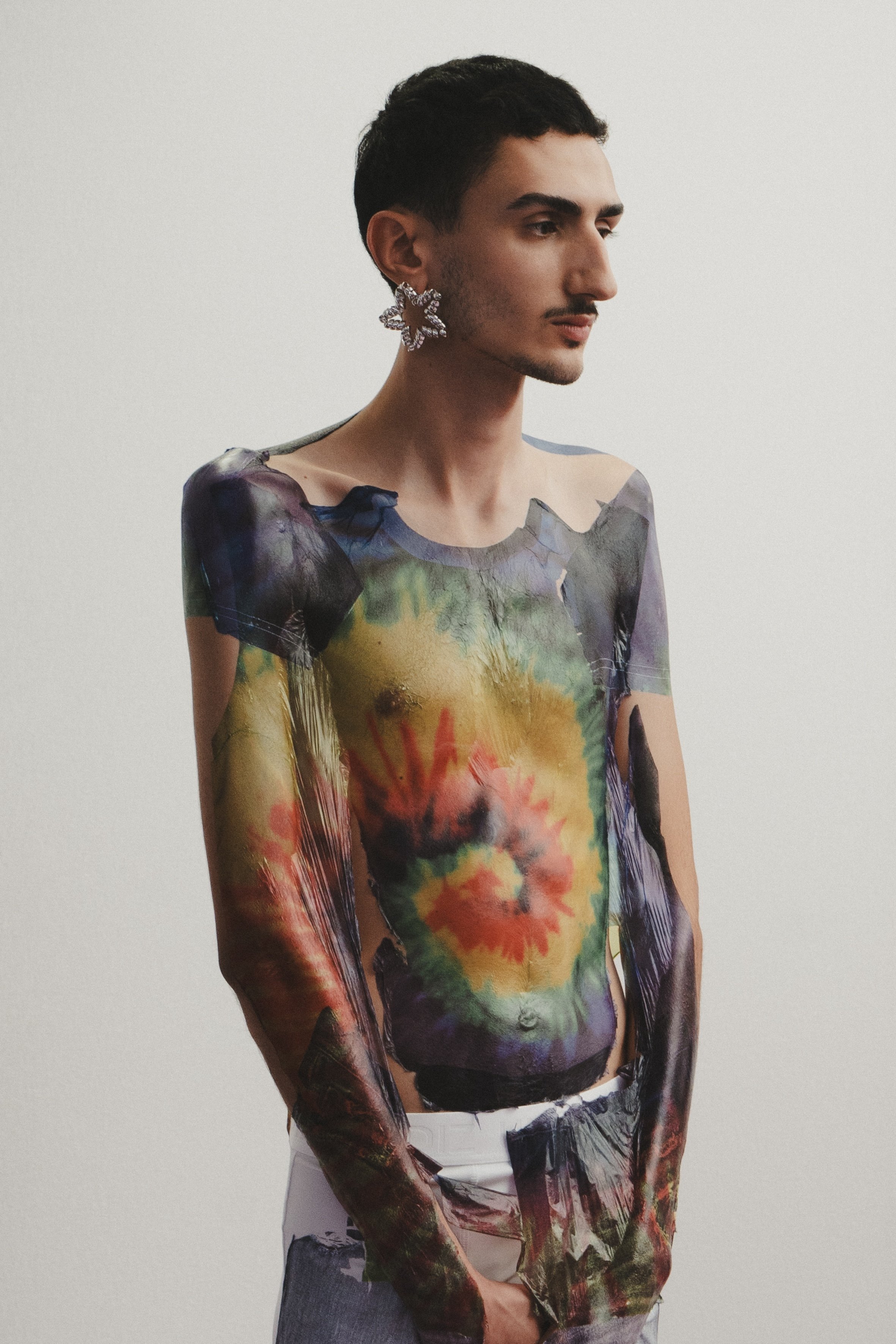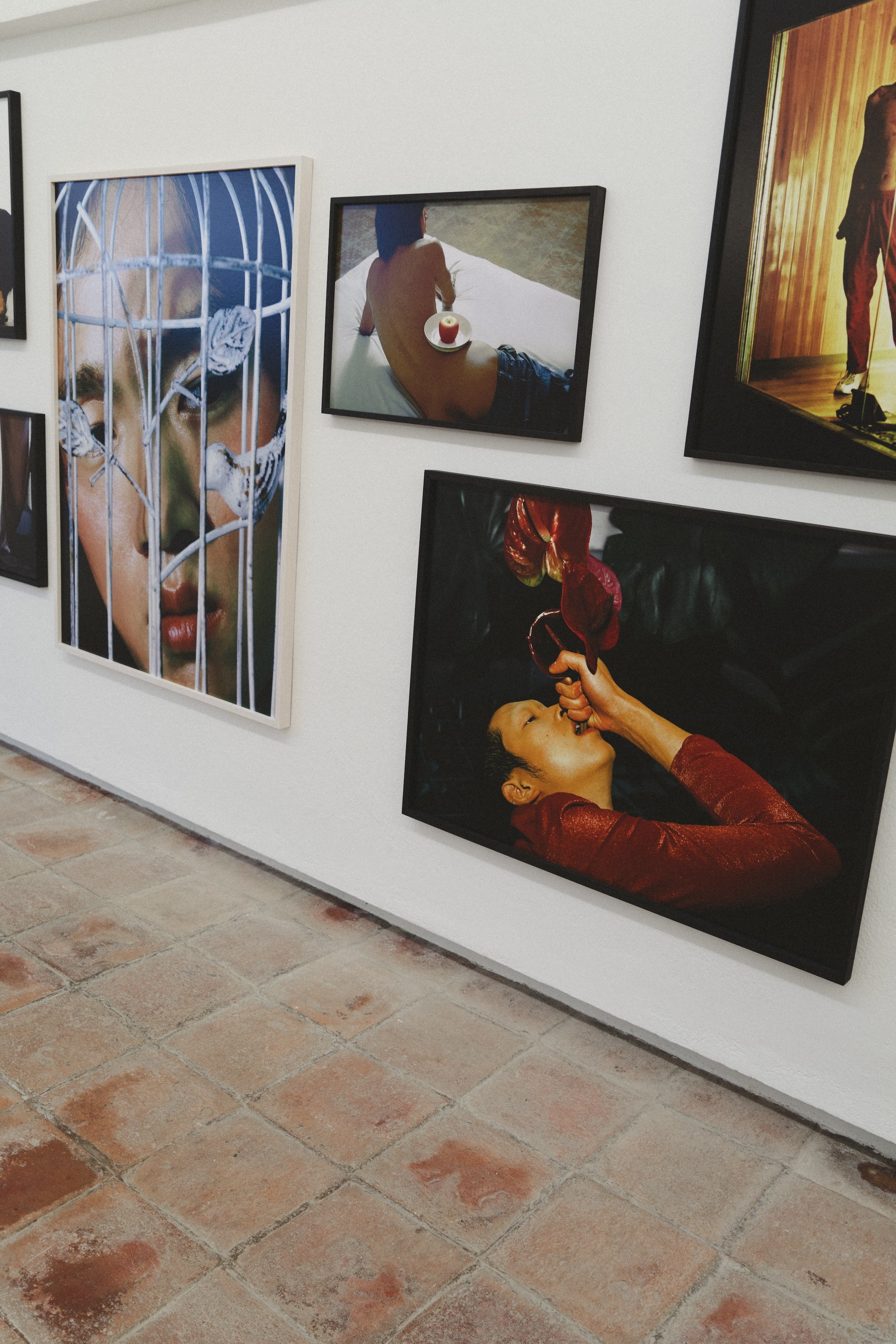VILLA NOAILLES #39: THE FLAME
Hyères, October 2024
When you talk to JEAN-PIERRE BLANC, you can't help but be struck by the human and creative values he embraces and simultaneously brings to the Hyères Festival, which he founded over 39 years ago. Amid the intensity of this annual and international gathering, between performances, countless presentations and the award ceremony for a dozen prizes, I was lucky enough to sit down with him for a few minutes on the roof of the famous Villa Noailles which I discovered for the first time. On the eve of Blanc's 60th and the festival's upcoming 40th birthday, we discussed this 39th edition, its cultural mission and issues, but also the curiosity, love and sincere commitment of the man who continues to make it possible and necessary. At one point he said, “Emotion is my life. Artists move me. It’s like a flame that’s there all the time and keeps me wanting to do it.” Those words say it all.
It's the 39th edition of the festival, and I'm thrilled to be here for the first time! I wanted to start by asking you, what continues to surprise you?
Life. The artists. And the audience. I'm already surprised that I still want to do the festival, even if it's very different year after year. I'm surprised that I'm always so enthusiastic about seeing artworks. But I think that when you love it, it's for life. You can't be moved at 40 and not be moved at 60. I think we may even be more so, in a different way. Back then, I was the one who looked at all the applications, and I got really excited. There was an obvious kind of creative emulation. Today, I don't do that anymore, but I get excited by other things. Emotion is my life. Artists move me. It's like a kind of flame that's there all the time and keeps me wanting to do it. When that flame is shared with the artists and the people who come to visit the festival, whether professionals or the general public with smiles on their faces, I tell myself that's what our mission is, to support the artists and pass on the message to the public.
We can definitely feel it. I'm impressed by the freedom and creative encounters that take place in and around Villa Noailles. Next year marks the festival's 40th anniversary – is there anything special at stake for you as this date approaches?
Yes, because 40 years is a long time. It seems almost crazy to have given so many years of my life to this festival. I didn't realize it, maybe if I did I wouldn't have done it. [Laughs] First of all, I know how fragile the festival is. We're always on a tightrope, because we do everything on a shoestring, and the finances in the French provinces are not the same as those in Paris. Can you imagine that the 70% of Ministry of Culture subsidies are distributed in the Ile-de-France region, and the remaining 30% throughout the country? If I leave, the money I find in the private sector may not be there for the person who replaces me. This will make the festival even more fragile, so I feel a kind of responsibility to try to be creative in inventing what comes next. We're currently competing in a major national project called “A call for expressions of interest” launched by the President for France 2030. We entered this competition to assert that the creative heart of fashion and interior design outside of Paris lies in Hyères and Toulon. I think the festival's 40th anniversary is a good time to point out that local authorities have been funding the Hyères festival for 40 years, and that if there's to be a national fashion centre somewhere, it would be natural to have it here, for the country's political and cultural balance.
The festival represents a real political and social commitment to continue to support the younger creative generations. Do you see it as a means of transmission?
Yes, but I sincerely believe that it can take many different forms. That's the great thing. You can be the average visitor who might not understand what the artist is trying to say, but who's going to make up his own story, and then there'll be people who'll be interested in how things were built, or in the economic aspect of the creative industries. Personally, I like the fact that all these entry points are possible and that everyone can choose their own path. Culture is free, open and can be shared with everyone, at all levels. At least, that's what I'm trying to provide.
A challenge that's already been met. The beauty of this event is that there are both emerging artists and guests of honour who are among some of the greatest creative minds of our time. How do you create this balance?
We've always tried to achieve it. It's obvious – and I don't mean this in a negative way – that if you only show young artists, a part of the population won't be interested. Showing the work of Nicolas Di Felice and the Courrèges house makes people want to come, and at the same time allows the work of younger talents to be highlighted. It's this balance that we have to strike in our programming. It's never easy, but from my point of view as a director, it's very important.
How do you continue to feed your curiosity?
In whatever way I can. My only frustration is that I don't have the time to travel. I know I'm missing out on a lot. At the same time, I already see so much that if I did travel, I don't know how I'd manage to narrow the spectrum. [Laughs] I also love Instagram. I think it's a place with immense possibilities to discover young artists. It gives them opportunities to sell, to make themselves known, and to take a stand, even though there are some horrible things about this platform. Social media has been something new for me, but I use it a lot. Besides that, I go to see exhibitions in Paris, and I love magazines, they've always been a great source of inspiration. There are also artists who write to me. In fact, there aren't many, which surprises me a little. I think it's a fear thing, which I don’t understand because I try to smile and put on as many smiley faces as possible. [Laughs]
Today is the eve of your 60th birthday. What do you think has changed the most in the last 39 years?
I'd say that the older I get, the more radical I become, in the sense that I only want to work with people I like or whose work, positions, kindness or empathy I appreciate. Life is tough. I've had an extraordinary life, but it's still hard, especially because of the life choices I've made like homosexuality, which is a hard choice to make, and even more so in provinces. I want to love and I want to be loved, I want nice, intelligent and refined people around me. So at my age, I avoid troublemakers and people who piss me off as much as possible. All this means that I'm navigating a world that's mine and that I keep choosing more and more. And that's fine with me!
Thank you so much for your honesty. To conclude, how would you describe this 39th edition in one word?
I have two: ‘generosity’ and ‘creativity’.
Interview and photography by Hanna Pallot






















































